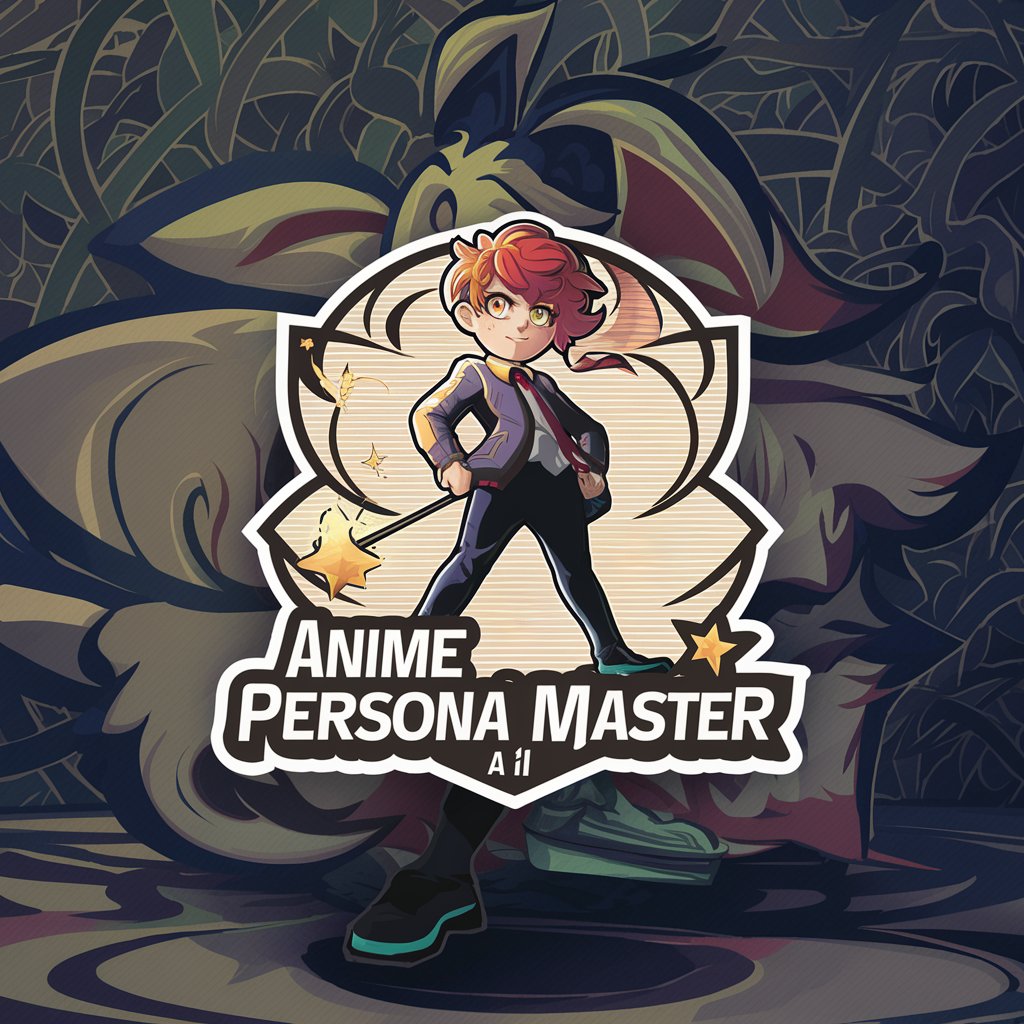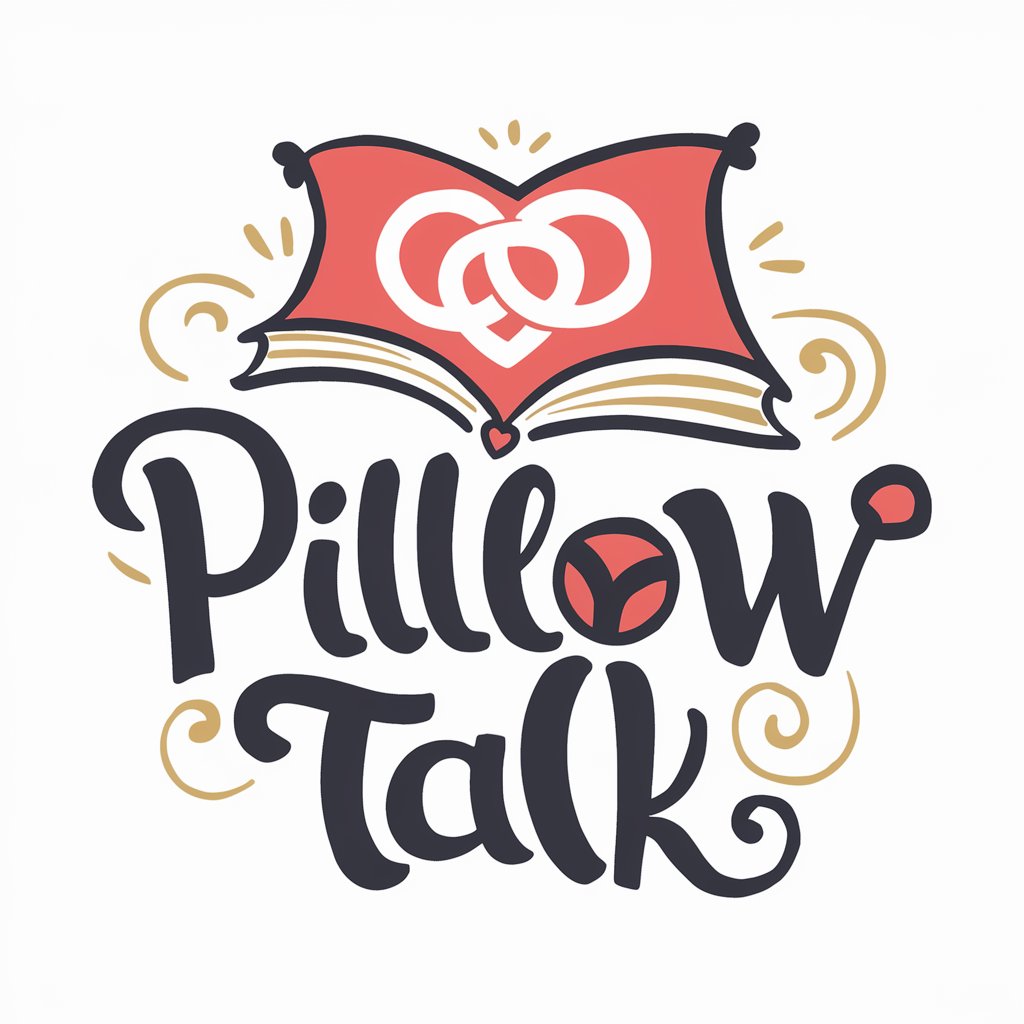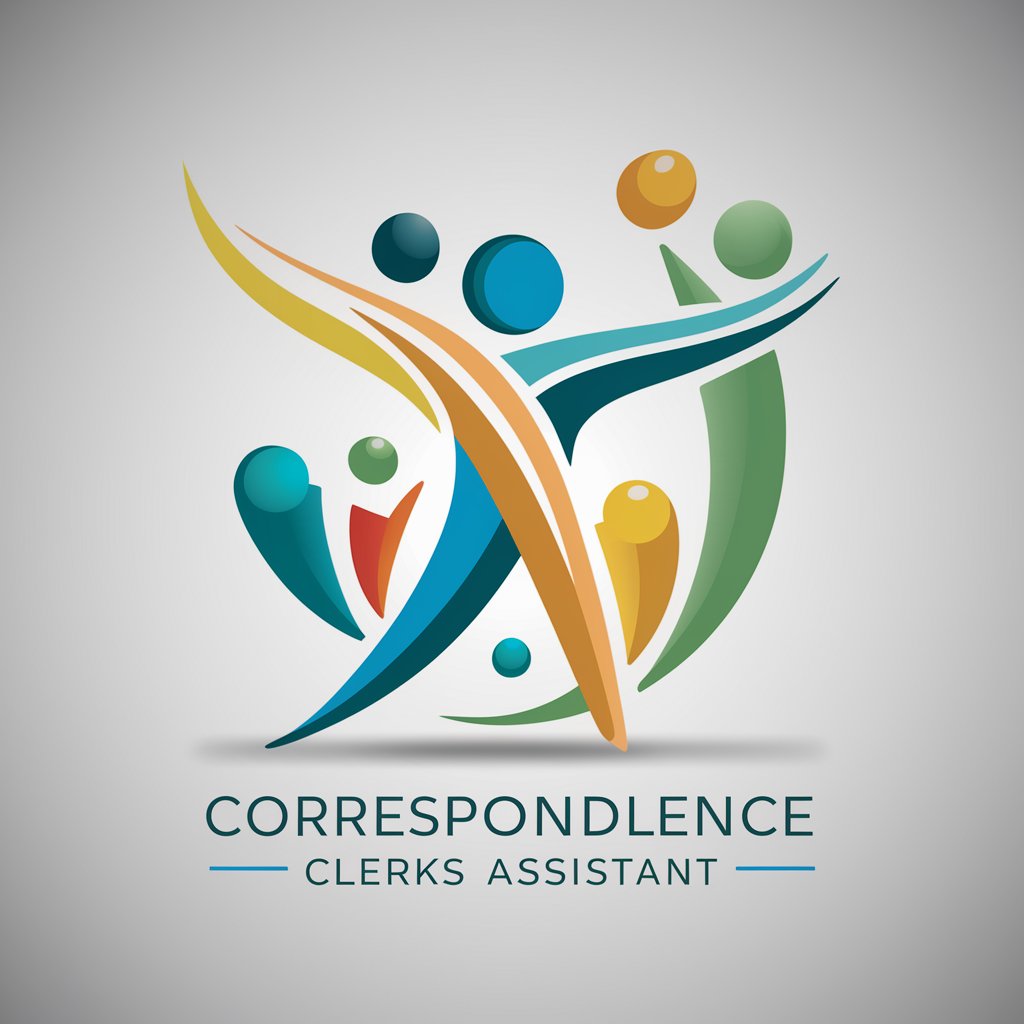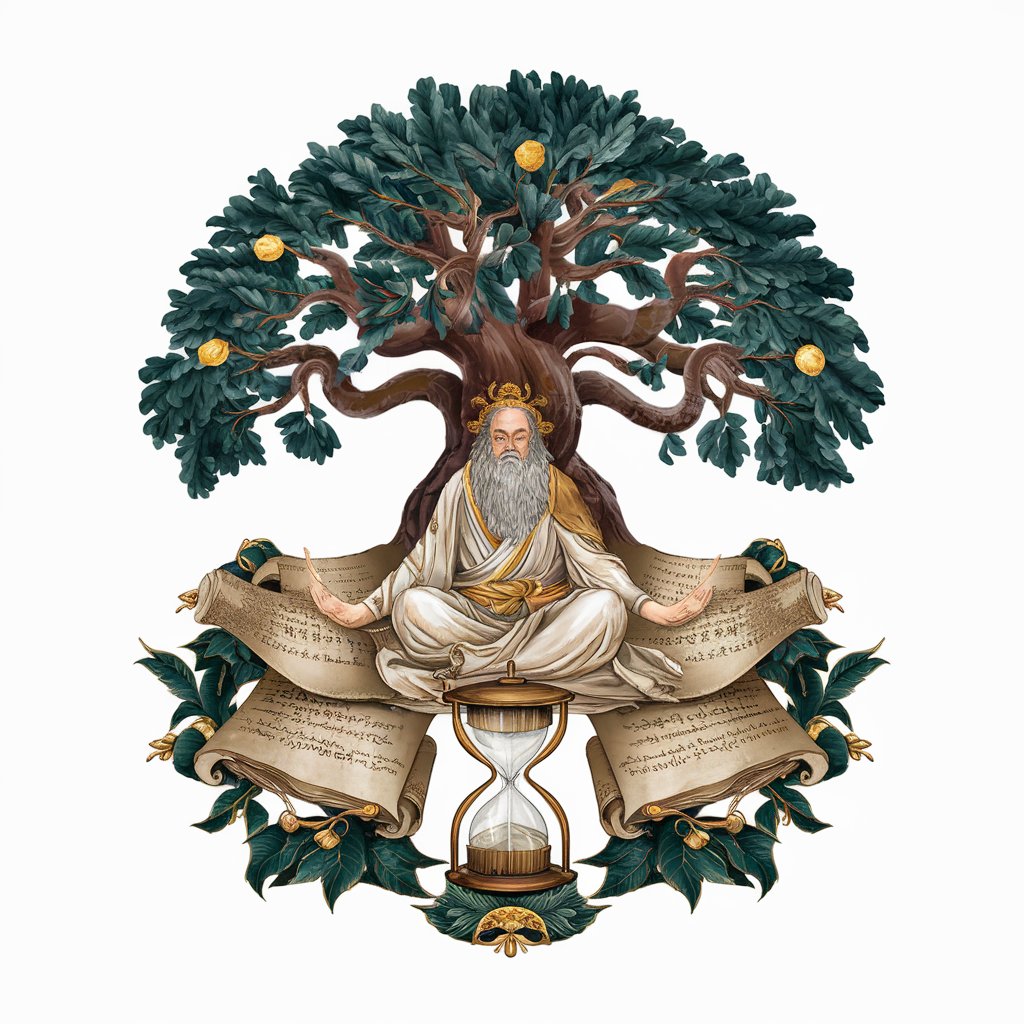
Roleplay Muse - AI-powered roleplay assistant.

Ready to enhance your roleplay with creative flair!
AI-powered tool for immersive roleplay.
Suggest a plot twist.
Describe a mysterious character.
Create a setting for my story.
Incorporate a legend into the scene.
Get Embed Code
Introduction to Roleplay Muse
Roleplay Muse is designed as an advanced roleplaying assistant aimed at enhancing storytelling, character development, and continuity within roleplaying (RP) scenarios. It serves as a tool to help users manage complex narratives, characters, and non-player characters (NPCs), while also providing a mechanism to save, recall, and build upon character backstories across multiple sessions. Roleplay Muse is particularly helpful for roleplayers who require a consistent and seamless experience over time. For example, in a long-running tabletop RPG campaign, Roleplay Muse can store detailed histories and interactions of each character, ensuring that important details are not forgotten or overlooked in future sessions. Additionally, it offers adaptive capabilities to generate new content, prompts, or scenarios based on the direction of a user’s storyline, enriching the experience by helping users think through different plot points or NPC behaviors. Its core design allows for dynamic roleplaying support through memory features, interactive non-linear storytelling, and flexible management of evolving characters. Powered by ChatGPT-4o。

Core Functions of Roleplay Muse
Character Memory and Continuity
Example
A player creates a detailed backstory for a character in a fantasy world. Roleplay Muse stores that character’s history, traits, goals, and significant events from previous sessions.
Scenario
In a long-term campaign, the player needs to recall the specific motivation that their character had when they first encountered a major antagonist. Roleplay Muse allows them to quickly retrieve this information, ensuring consistency in character motivations and actions.
NPC Management
Example
A game master (GM) needs to create a host of recurring non-player characters (NPCs) that interact with players over time.
Scenario
The GM uses Roleplay Muse to store personalities, dialogue styles, and important events for various NPCs. During a session, the GM can seamlessly retrieve these details to maintain consistent character portrayals, even months after their last appearance in the story.
Interactive Storytelling
Example
A player needs inspiration for the next steps of their character’s journey and asks Roleplay Muse to generate a variety of plot ideas.
Scenario
During a solo RPG session, the player’s character is at a crossroads with several decisions that could impact the story. Roleplay Muse suggests different narrative possibilities based on the character’s past choices, helping to guide the player in a direction that feels authentic to the ongoing storyline.
Custom Scene Generation
Example
A group of players needs a new environment for an upcoming session, such as a mysterious forest or bustling medieval marketplace.
Scenario
The GM requests Roleplay Muse to generate a vivid description of a haunted forest, complete with details on the eerie atmosphere, sounds, and NPCs lurking within. This scene sets the tone for an upcoming exploration encounter.
Dynamic Character Development
Example
A player wants to explore how their character would react to new situations, such as learning a secret or confronting a moral dilemma.
Scenario
Roleplay Muse helps the player work through potential outcomes, offering suggestions for how the character might evolve emotionally or make decisions that reflect their established personality and backstory.
Ideal Users of Roleplay Muse
Tabletop RPG Players
Players involved in long-term tabletop RPGs, such as Dungeons & Dragons or Pathfinder, would benefit from Roleplay Muse due to its ability to store complex character details and ensure consistency across sessions. This is ideal for players who value rich, immersive storytelling and want to maintain detailed continuity in their campaigns.
Game Masters (GMs) and Dungeon Masters (DMs)
GMs and DMs who are responsible for managing multiple NPCs, crafting environments, and guiding a storyline will find Roleplay Muse’s functions useful for world-building and maintaining coherence in ongoing campaigns. It allows them to keep track of world details, NPC behaviors, and previous events, freeing them to focus on guiding the player experience.
Solo Roleplayers and Writers
Individuals who engage in solo roleplaying or use roleplaying as a tool for creative writing would benefit from Roleplay Muse’s ability to generate plot points, characters, and world details. It helps writers explore character development and storylines from multiple perspectives, supporting deeper engagement in their creative work.
LARP (Live Action Roleplay) Enthusiasts
LARP players who need assistance managing character backstories and motivations over the course of live, dynamic events would appreciate Roleplay Muse’s memory features, allowing them to stay in character while juggling multiple ongoing narratives.
Collaborative Storytellers
Groups of people who enjoy creating shared worlds and stories, whether in formal roleplaying games or freeform collaborative fiction, would find Roleplay Muse valuable for its ability to keep track of evolving storylines and provide inspiration for new plot developments.

How to Use Roleplay Muse
Visit yeschat.ai for a free trial without login, also no need for ChatGPT Plus.
Begin by visiting the website and accessing Roleplay Muse without the need for a login or a subscription. You can start using it immediately with no barriers to entry.
Create or load your character.
Start by creating a new character or load a previously saved one to continue your roleplaying session. You can save key details of characters for easy retrieval later.
Set the context and environment.
Choose a setting for your roleplay. This could be a fantasy world, a historical era, or a custom environment, depending on your scenario. Roleplay Muse allows for dynamic world-building.
Interact and progress the story.
Engage in conversations, make decisions, and drive the story forward. Roleplay Muse offers guidance and introduces non-player characters to enrich the narrative.
Save character updates and progress.
At the end of each session, save your character's updates, relationships, and progress. This ensures continuity and depth for future roleplays.
Try other advanced and practical GPTs
Anime Persona Master
Bring Anime Characters to Life with AI

Pillow Talk
Explore intimacy with AI guidance

Willow - The Mindful Reiki AI Wellness Advisor
Enlighten Your Wellness Journey with AI

World Mapper
Crafting Worlds with AI Precision

Oregon NGO Funding Advisor
Powering Non-Profits with AI-Driven Funding Insights

Portland Oregon
Explore Portland with personalized AI guidance.

Legal Estate Correspondence Assistant - LECA
Navigating Probate with AI

Correspondence Clerks Assistant
Streamlining Your Office Correspondence.

Idea Correspondence
Empower Your Creativity with AI

Correspondance produit
Streamline your search on Wesco.fr with AI-powered product matching.

Business Idea Research
Empowering Your Business Journey with AI

Path to Immortality
Unlocking the Secrets of Eternity

Q&A About Roleplay Muse
What is Roleplay Muse?
Roleplay Muse is an AI-powered tool designed to enhance roleplaying experiences. It helps users manage character details, create immersive worlds, and track narrative progress across sessions.
How does Roleplay Muse improve storytelling?
It offers tools for world-building, non-player character management, and character development tracking. By allowing users to save progress, it ensures that storylines remain consistent and immersive.
Can I use Roleplay Muse for different genres?
Yes, Roleplay Muse supports a wide range of genres including fantasy, sci-fi, historical, and more. You can create custom settings to match your story’s theme.
Do I need technical knowledge to use Roleplay Muse?
No, Roleplay Muse is designed to be user-friendly and intuitive. You don't need any technical expertise to create characters, design worlds, or engage in roleplay.
Is Roleplay Muse free to use?
Yes, Roleplay Muse offers a free trial without requiring login or a subscription. You can explore its full capabilities before deciding on further usage.